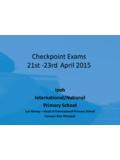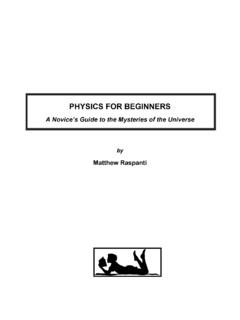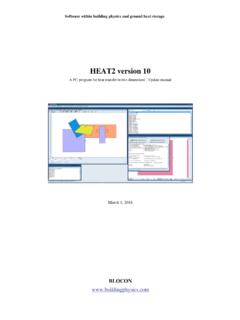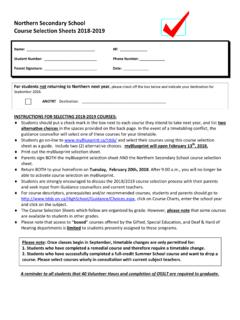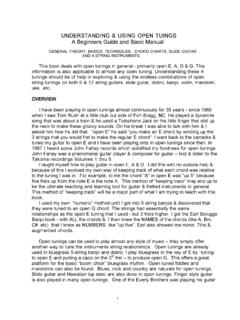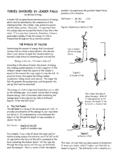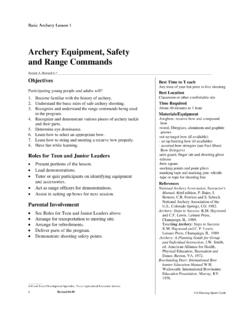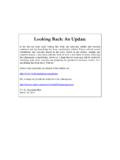Transcription of KEY STAGE 4 - tenby.edu.my
1 KEY STAGE 4 IGCSE SUBJECT BOOKLET 2018 TO 2020 IPOH CAMPUS Contents Transition from Key STAGE 3 to Key STAGE 4 Key STAGE 4 Curriculum Core Examination Subjects Compulsory Optional Examination Subjects Non-Examined Curriculum International General Certificate of Education (IGCSE) Grading Core or Extended Levels Choices IGCSE Subjects Art and Design Biology Chemistry Design and Technology Drama Economics English Language English Literature Geography History Information and Communication Technology Mandarin (Chinese) Malay Mathematics Music Physical Education Physics Further Assistance Transition from Key STAGE 3 to Key STAGE 4 The transition from Years 7, 8 and 9 (Key STAGE 3) to Years 10 and 11 (Key STAGE 4) is a very important phase in education.
2 Students during Key STAGE 3 have followed a core curriculum, which has contained very little element of choice but provided an important breadth and depth. During Key STAGE 4 students will study a narrow core curriculum supplemented by several optional subjects from a broad range of disciplines. These courses are concluded by an external examination, the International General Certificate of Education (IGCSE), from the Cambridge International Examination Board (CIE). Key STAGE 4 Curriculum Core Examination Subjects Compulsory All students in Key STAGE 4 will study the following core subjects: English Language (1st or 2nd Language IGCSE) Malay (Foreign Language IGCSE or Malay for beginners) Mathematics (Core or Extended IGCSE) Whilst all students are expected to have taken the IGCSE examinations in the core subjects by the end of Year 11 some will be given the opportunity to do so in Year 9 and 10.
3 Students that have demonstrated a higher level of English and Mathematics will be given the opportunity to take IGCSE examinations in English Literature and Additional Mathematics in Year 11. It is generally expected that an A or A* grade be achieved in external examinations in English as a First Language and Extended Mathematics, in Year 10 if they are to be permitted to take up this opportunity. In addition to the core subjects above, Chinese (1st Language, 2nd Language and Mandarin) IGCSE examinations may be taken by students at the end of Year 9 and 10. A higher or additional level of study in each of these subjects, Maths English, Malay and Chinese, will be available to students in Year 11. For example, A-Level Chinese, HSK Chinese, 1st Language Malay (based on SPM), Additional Mathematics and Literature in English.
4 Optional Examination Subjects Optional subjects are grouped into 5 blocks. Students are expected to select one subject from each block to follow to IGCSE level. It is compulsory to include a minimum of one Science subject and one Humanities subject in their choices. Option blocks have been designed to ensure that all career pathways are fully catered for. Block D Biology, History, Economics or Design Technology Block E Physics, Geography, Economics, Drama or Physical Education ( ) Block F Biology, Chemistry, Art or Economics Block G Biology, Chemistry, Physics or Mandarin (Chinese) Block H Chemistry, Physics, Music or Information & Communication Technology (ICT) Non-Examined Curriculum All students in Key STAGE 4 will follow non-examined courses in Physical Education and Personal, Social and Health Education.
5 International General Certificate of Education (IGCSE) Grading The IGCSE is a globally recognised qualification taken at the end of Key STAGE 4. The curriculum followed at Tenby is set by CIE and is an internationally benchmarked examination. Unlike in Key STAGE 3 where the National Curriculum Levels are used the IGCSE uses an A*- G grading system. Students not achieving a minimum G grade will be recorded as a U (unclassified) grade. However, it is important to note, that whilst a grade D to G is considered a pass, a grade C or above is desirable. Core or Extended Levels A number of IGCSE subjects offer two levels of examination. The Core level restricts students to a maximum grade of C whilst the Extended level provides access to the full range of grades. Students will be advised on the best examination to take after the Mock Examinations in Year 11, and in consultation with parents.
6 Details are provided on the subject pages that follow. It is also important at this STAGE to note that the IGCSE is the main route to A-levels in the Sixth Form. Success at IGCSE is essential to ensure a smooth transition to A-level and for some subjects the IGCSE Extended level of study in that subject is a requirement. Choices When making IGCSE Options choices, it is important that students consider the impact their choices may have on their future educational and career path. Senior Leadership, Key STAGE Co-ordinators and Form Tutors will provide significant guidance in this respect. As students move into Key STAGE 4, there will be an on-going series of discussions relating to higher education and career planning. It is important, too, that student s decisions focus on the subject itself and are not influenced by friends perspectives or the personality of a teacher who has taught them previously in that subject.
7 There is no guarantee that a particular teacher will be available to teach a student for the whole or even part of the course. Students are advised to reflect seriously on their skills and abilities, their genuine preferences, their future aspirations and the recommendations and views of their teachers. Students need not be anxious if they are uncertain at this STAGE , of their future direction; guidance will be provided for them to ensure that their choices are appropriate. It is important that decision-making involves the student, the parents and the teachers. To this end, we have created a range of formal opportunities for all the members of this partnership to contribute to this process. Key guidance dates: February Parent Information Session Student Information Session and Options booklet issued March Year 9 meet Year 10 IGCSE Subject Representatives Course selection made and registered with School April Options confirmed with students and parents Students are strongly advised to take full advantage of the guidance opportunities provided.
8 IGCSE Subjects Art & Design 0400 Course Introduction The syllabus aims summarise the context in which students should view the syllabus content and describe the purposes of a course based on this syllabus. They are not listed in order of priority. The aims are to enable students to develop: an ability to record from direct observation and personal experience an ability to identify and solve problems in visual and/or other forms creativity, visual awareness, critical and cultural understanding an imaginative, creative and personal response confidence, enthusiasm and a sense of achievement in the practice of art and design growing independence in the refinement and development of ideas and personal outcomes engagement and experimentation with a range of media, materials and techniques, including new media and technologies, where appropriate experience of working in relevant frameworks and exploration of manipulative skills necessary to form, compose and communicate in two and/or three dimensions a working vocabulary relevant to the subject and an interest in.
9 And a critical awareness of, other practitioners, environments and cultures investigative, analytical, experimental, interpretative, practical, technical and expressive skills which aid effective and independent learning Content Art & Design has been designed to offer a broad choice of media and approaches so that students can produce a personal response and the school can play to their strengths in terms of staff, expertise and interests. The broad areas of study are: painting and related media printmaking three-dimensional studies photography, digital and lens-based media graphic communication textile design. Students can respond to any component using any of the media above Summary of the Programme There are four components: Component 1 Broad-based assignment This component is compulsory for all students.
10 This is an externally set assignment which is marked by Cambridge. There are two parts to this component: the supporting studies and the final outcome which is produced during the eight-hour examination. Cambridge will assess both parts together and award a single holistic mark out of 100. This component gives students the opportunity to explore any of the areas of study in response to the selected questions. It could be observational, interpretative or a combination of both. Alternatively students may use any question as the starting point for a design brief of their choice. Component 2 Design-based assignment This is an externally set assignment which is marked by Cambridge. There are two parts to this component: the supporting studies and the final outcome which is produced during the eight-hour examination.
